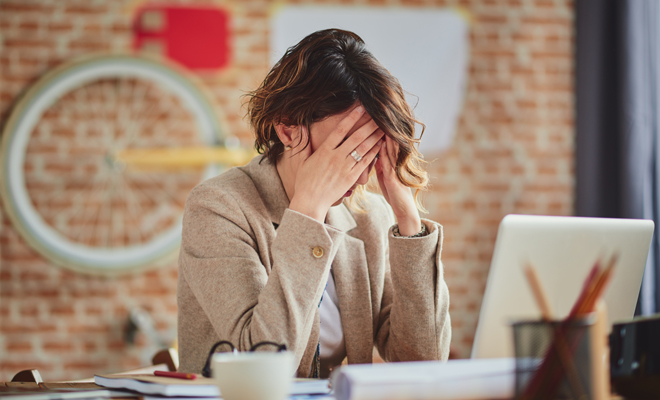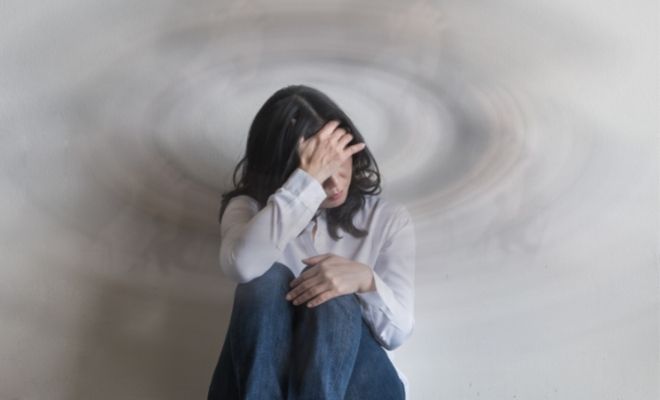Antidepressants and anxiolytics are drugs that are the order of the day. Due to the increase in cases of depression and anxiety disorders, today we live with these drugs without really knowing what each one is for. We will tell you about the differences between antidepressants and anxiolytics, but we warn you in advance that you will have to be much more careful with anxiolytics.

Antidepressants and anxiolytics: differences and uses
The name of the antidepressants can confuse us because it seems that we restrict them to cases of depression. It is not like this. It is true that these drugs are prescribed in the treatment of depression to alleviate symptoms and redirect the production of neurotransmitters, but they are also commonly prescribed for cases of anxiety.
And along with the feared antidepressants, other medicines with better fame but much more dangerous arrive: anxiolytics. Be careful, the fact that anxiolytics are very dangerous does not mean that they are not needed for some cases of anxiety disorders. Here we come to the main differences between antidepressants and anxiolytics.
1 Antidepressants reduce anxiety, anxiolytics calm you down.
2 Antidepressants can cause insomnia (not all), anxiolytics help you sleep.
3 Antidepressants take a few weeks to take effect, anxiolytics have an immediate effect.
4 You can take antidepressants for a long time; you shouldn’t do the same with anxiolytics.
5 Antidepressants are not additives, anxiolytics are.
Despite all these differences, there is something in common in both types of drugs and that is that if you really want to take advantage of their use, they must be accompanied by psychological therapy. Remember that both antidepressants and anxiolytics work to reduce, alleviate or even hide the symptoms, but the problem is still there and will continue until you receive psychological.
The danger of dependence on anxiolytics and antidepressants
Far from wanting to demonize the use of drugs for disorders such as depression, anxiety or Obsessive, we reaffirm the idea that you have to lose your fear of antidepressants. The same is not the case with anxiolytics, which although they are also necessary in some cases, the risk of dependency is so high that it would be better for us to look at them with some fear.
Although most people fear and doubt for a long time whether to take them or not, the truth is that where the danger of dependence really lies is with anxiolytics. Yes, that little pill that helps us sleep and relieves anxiety is only for one season and as short as possible. Then we’d better face the ups and downs of life without her.
Generally, an antidepressant will have to be taken for a few months, at least 4 months. And later you can stop taking it, gradually, never suddenly. However, anxiolytics will always need a larger dose every day to have the desired calming effect. So, be very careful with taking anxiolytics and try not to take them for more than two weeks in a row.
Is it a good idea to musicalize emotional disorders?
The debate is open and will open even more before the increase in the consumption of these drugs to treat emotional disorders. Do not be ashamed for needing medication after a breakup, when leaving a situation of abuse, after a job dismissal or when. Sometimes, many, medication are needed to overcome certain complicated situations in life.
Because pain doesn’t understand hierarchies and your drama is no less important than someone else’s. Because anxiety appears and there is no need to decide if you have the right to be so bad. Go to your doctor and let yourself be advised, but be careful. Primary care doctors are the first to prescribe antidepressants and anxiolytics and in many cases they do not warn you of the consequences.
With consequences, we are not talking about side effects, which are found in all drug leaflets, but about the risk of dependency that they can cause, in this case anxiolytics. It is increasingly common to go to the health center with an anxiety problem and leave with a prescription for anxiolytics without including psychological treatment.
It is logical, because in Spain, for example, there are 4 psychologists for every 100,000 users of Public Health. Indeed, resources are scarce, time in consultation is short, but we are sure that hiding the symptoms of anxiety under a false and addictive tranquility in the form of a pill is not the solution to treat anxiety problems either.






